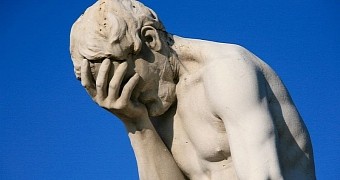It seems that when it comes to the Internet, some people are completely oblivious to how it works and what it stands for. These people are, of course, most often than not either overzealous copyright owners or groups representing them and law enforcement officers who haven’t studied the problem from all angles.
Andy Fyfe, the head of the City of London’s Police Intellectual Property Crime Unit (PIPCU), believes that the government may have to tighten the rules on the Internet in order to get people to stop breaking the law, reveals an interview he gave for PC Pro.
“I’m very interested in having a debate in the media about how much policing of the Internet people want. At the moment, there’s almost no regulation and no policing of the Internet,” Fyfe said.
As you may already know, the PIPCU was created last year and has been working closely with copyright holders to fight against online piracy. In the name of this relationship, it has been sending domain registrars letters asking them to suspend various sites without having a warrant to back up the demand.
Fyfe believes that pirate site operators are criminals and that average Internet users need to be protected from them. If this doesn’t happen, then the Internet may descend into anarchy, which is why the government needs to intervene to prevent it.
The Internet is heading towards anarchy
“In the end, that might mean that the Internet becomes completely ungovernable, and that no one can dare operate on it at all, no one can dare do their shopping or banking on it. So should there be a certain level of state inference in the interest of protecting consumers? I’m very keen to raise that as a debate,” Fyfe states.
He goes as far as to say that perhaps people should have to get a license before being allowed to launch a website, which is, of course, just as far-fetched as the rest of this statement.
Fyfe notes that there may come a time when the government will see fit to intervene in the way the Internet works because main companies ”that control the way we use the Internet” (read “Google”) aren’t doing enough to help. The government may even have to impose a code of conduct on how people act on the Internet, as well as regulations.
The Internet, in general, is viewed as an area that doesn’t need regulations, where people can be free of various constrictions. That’s why when one site is blocked in one country or another, it is called “censorship.” Having the government involved in the way the Internet works would be another form of censorship and it’s quite likely that Fyfe’s idea will not get any traction, despite how much copyright groups would like it.

 14 DAY TRIAL //
14 DAY TRIAL //